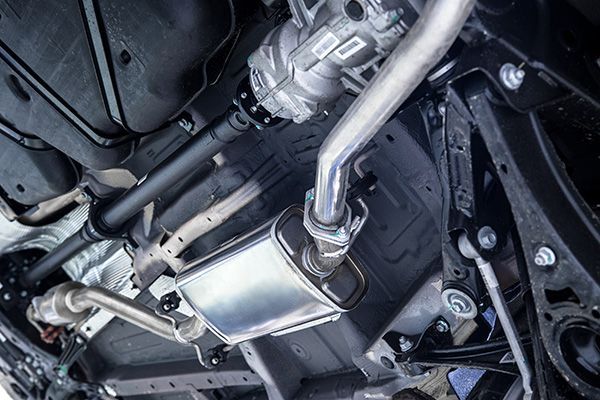Loading ...
Missing business hours data / Error occurred while getting the data.
What Does Black Smoke from My Car's Exhaust Mean?
December 20, 2024

Seeing black smoke pouring out of your car’s exhaust can be alarming, and for good reason. It’s not just an eyesore; it’s your car’s way of signaling that something is off. Whether you’re driving through the streets of Colorado Springs, CO, or stuck in traffic, noticing black exhaust smoke demands immediate attention. Understanding the causes and implications can save you from costly repairs and ensure your car stays in peak condition.
Why Is Your Car Emitting Black Smoke
The color of exhaust smoke can indicate the health of your engine and fuel system. Black smoke, in particular, is often a sign that your engine is burning more fuel than necessary. These are the most common reasons for this issue.
Fuel Injection Problems
Modern cars rely on precise fuel injection systems to maintain the correct air-to-fuel ratio. When this system malfunctions, too much fuel can enter the combustion chamber, leading to black smoke. Common culprits include faulty fuel injectors
or a malfunctioning fuel pressure regulator.
If you notice black smoke combined with poor fuel economy, it’s likely that excess fuel is being burned off and wasted.
A Dirty Air Filter
Your car’s air filter plays a vital role in regulating airflow into the engine. When it’s clogged with dirt and debris, the engine doesn’t receive enough oxygen. This imbalance forces the engine to burn extra fuel, resulting in black smoke.
Replacing a dirty air filter is a straightforward fix, but ignoring it can lead to more significant issues over time.
Malfunctioning Sensors
Modern vehicles come equipped with sensors like the oxygen sensor and the mass airflow sensor, both of which ensure the proper mix of air and fuel. A faulty sensor can mislead your engine into burning more fuel than necessary, creating black exhaust smoke as a byproduct.
Issues with the Fuel System
Problems within the fuel system itself, such as a stuck fuel injector or a leaking fuel line, can disrupt the combustion process. Black smoke may appear as the engine struggles to handle the excess fuel.
The Risks of Ignoring Black Exhaust Smoke
It might be tempting to brush off black smoke as a minor issue, especially if your car still seems to drive fine. However, the underlying problems causing black smoke can lead to bigger headaches if left unaddressed.
For one, burning too much fuel doesn’t just hurt your wallet—it can also damage your car’s catalytic converter, a critical (and expensive) component of the exhaust system. Prolonged exposure to unburned fuel can clog the converter, reducing its efficiency and potentially leading to a total failure.
Excessive black smoke can lead to failed emissions tests, which might leave you scrambling to get your car back in compliance with local regulations.
What Should You Do About It
Fixing black smoke issues often requires professional diagnostics to pinpoint the exact cause. Here are a few steps to get started:
- Check the Air Filter: Inspect your air filter for signs of dirt or clogging. Replacing it is a quick and affordable solution that can make a big difference.
- Look at Your Fuel System: A professional inspection can identify problems with the fuel injectors, sensors, or pressure regulator. These components are best addressed by experts.
- Monitor Warning Lights: Pay attention to your dashboard. If the check engine light is on, it’s likely related to the issue causing the black smoke.
Don’t wait for a minor issue to turn into a costly repair. Visit LightHouse Automotive in Colorado Springs, CO, for reliable inspections and repairs. Call today to book an appointment!





Loading ...
Missing business hours data / Error occurred while getting the data.
trouble finding us?
Loading ...
Missing nap lines data / Error occured while getting the data.


.jpeg)


